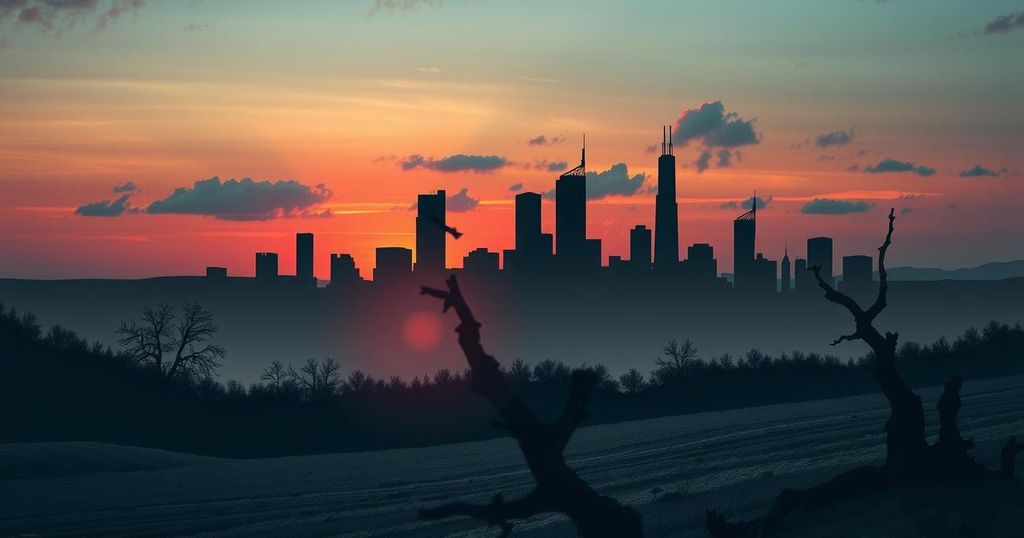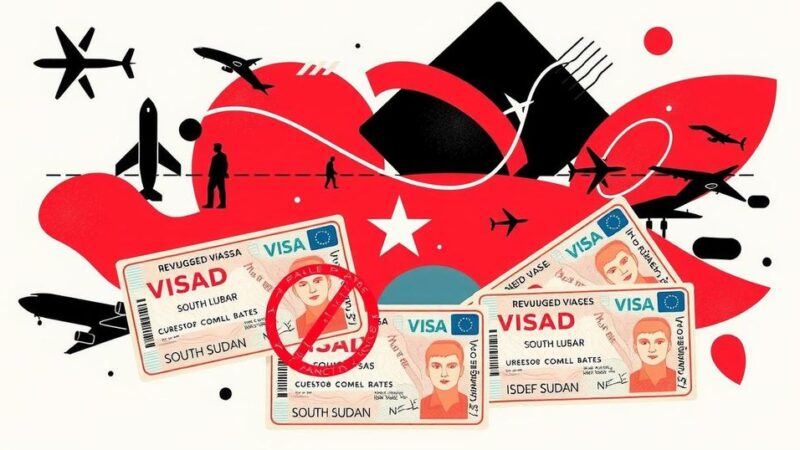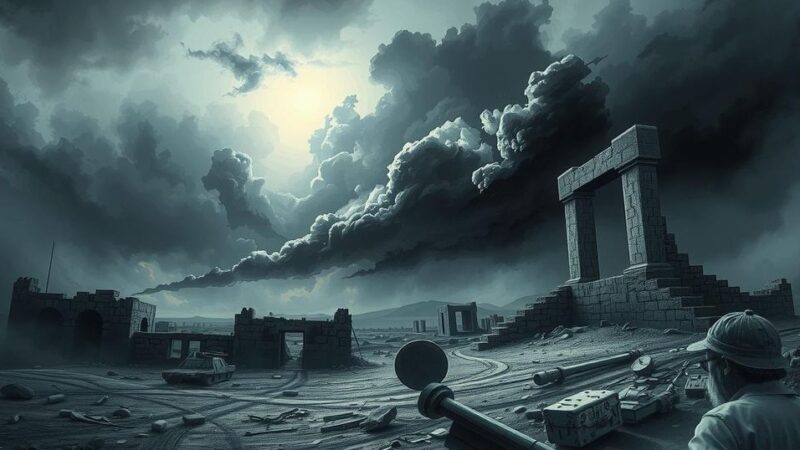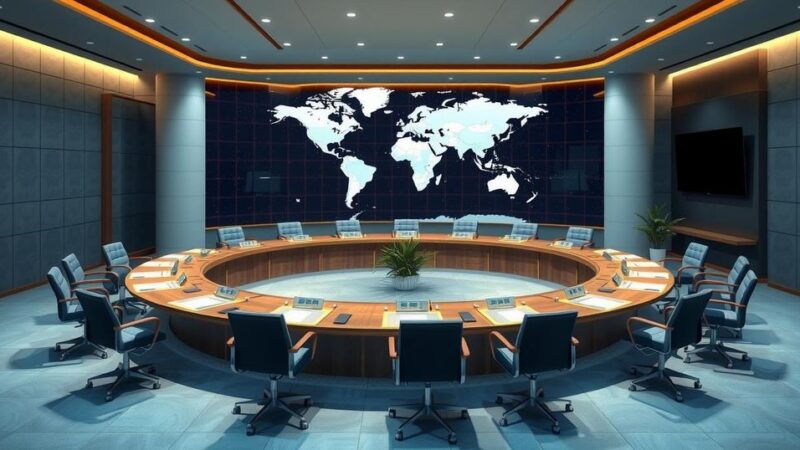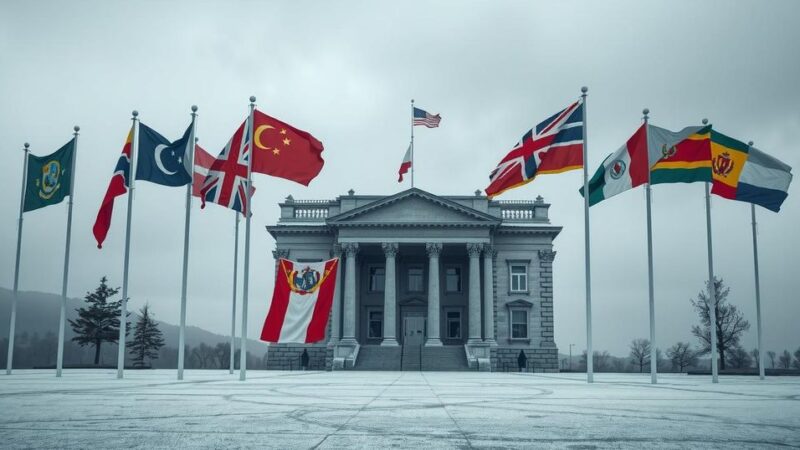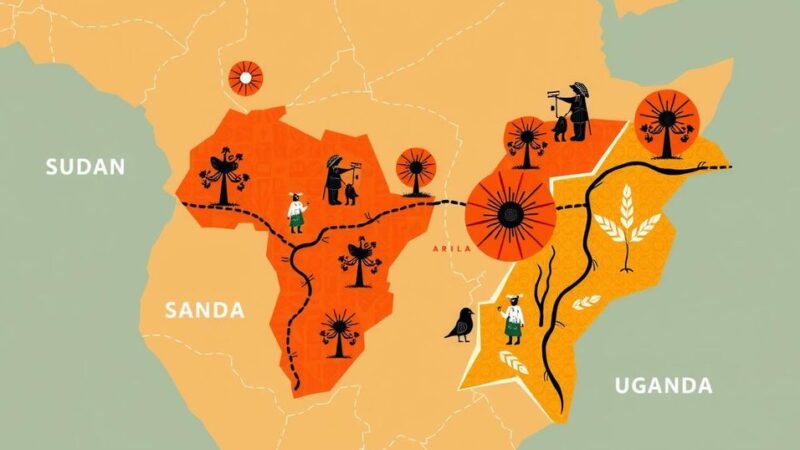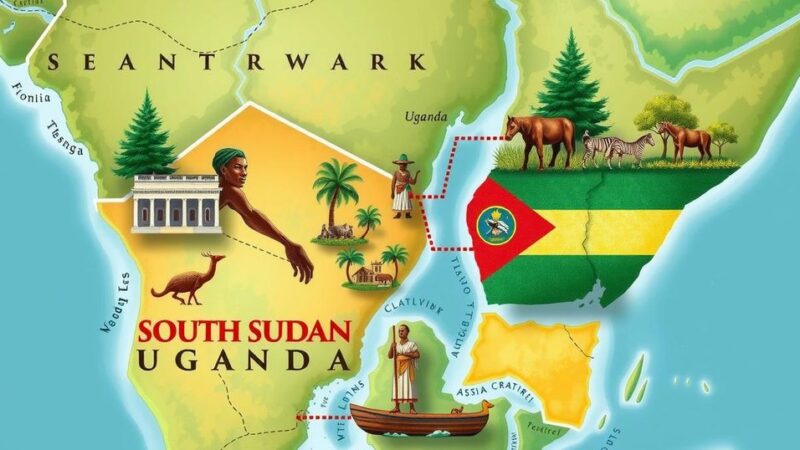M23 rebels, allegedly backed by Rwanda, claim to have captured Goma, leading to significant civilian displacement. The situation remains tense, with witnesses reporting the presence of rebel fighters and gunfire. DRC’s government responded to surrender ultimatums, while UN peacekeepers began evacuating. The conflict poses serious humanitarian risks in a region plagued by instability since the 1994 Rwandan genocide.
The M23 rebel group, reportedly backed by Rwanda, claims to have seized control of Goma, the eastern capital of North Kivu in the Democratic Republic of the Congo. Their rapid offensive has displaced thousands of residents, raising concerns of a broader conflict in the region. M23 spokesperson, Lawrence Kanyuka, reassured Goma’s citizens of safety, asserting that the situation is “under control.” Witnesses verified the presence of rebel fighters in the city center, amidst sounds of gunfire near the airport and border with Rwanda.
Government forces faced a deadline to surrender, leading to approximately 100 Congolese soldiers relinquishing their weapons to Uruguayan peacekeepers. Concurrently, personnel from the UN peacekeeping mission, Monusco, began evacuating their families to Rwanda. The eastern DRC is characterized by instability and a complex network of militia factions, a legacy of the regional conflicts that followed Rwanda’s 1994 genocide.
UN special representative Bintou Keita informed the Security Council that despite peacekeeping assistance, M23 along with Rwandan troops have breached the Munigi neighborhood of Goma, inducing widespread panic. Keita pointed out that advance tactics utilized by M23 involved using civilians as human shields during the escalated conflict. In response, DRC’s Foreign Minister Thérèse Kayikwamba Wagner condemned Rwanda for its alleged aggressive actions, characterizing it as an overt declaration of war.
Rwanda’s UN Ambassador, Ernest Rwamucyo, refrained from confirming DRC’s assertions, attributing blame to the Congolese government for the ongoing crisis, suggesting a lack of commitment to peace. The M23 group contends that its operations are aimed to safeguard the interests of the Tutsi population within DRC. Notably, the group previously captured Goma in 2012 but retreated after facing repercussions from international funding cutbacks to Rwanda.
The ongoing M23 offensive exacerbates an already dire humanitarian crisis, with over one-third of North Kivu’s population displaced due to persistent violence and instability. Reports indicate that a significant portion of the local populace now faces dire conditions as a consequence of the renewed conflict, highlighting the urgent need for resolution in the region.
The eastern Democratic Republic of the Congo (DRC) has long been a focal point of instability, deeply intertwined with the aftermath of the Rwandan genocide in 1994. Following this event, numerous rebel and militia groups have emerged, with M23 being the latest manifestation of Tutsi-led insurgencies in the region. This ongoing conflict is exacerbated by complex ethnic tensions and geopolitical maneuvering by regional powers, chiefly Rwanda, which frequently supports rebel factions in DRC. The humanitarian consequences are severe, as violence has forced millions of Congolese from their homes, creating one of the world’s largest displacement crises.
In summary, the M23 group’s claims of capturing Goma underscore the fragile security situation in the eastern DRC, with implications for regional stability. The accusations exchanged between DRC and Rwanda reveal deep-seated tensions and a protracted legacy of conflict in this area. As thousands flee their homes, there is an urgent call for diplomatic intervention to address the humanitarian catastrophe and prevent further escalation of hostilities.
Original Source: www.theguardian.com
